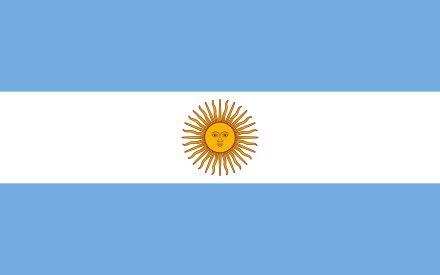enur72 on Nostr: Why did Javier Milei campaign on a platform that included a vision of reinstating ...
Why did Javier Milei campaign on a platform that included a vision of reinstating monetary freedom in Argentina?
The answer is that it's because he is a student of the Austrian School of Economics who also understand his country's history.
Monetary freedom, sometimes referred to as having a system with competing currencies, is properly defined as the right for the people to use the money they like best.
Few are aware that the Argentine people enjoyed monetary freedom from the revolution in 1816 until the government adopted the gold standard in 1881.
The number of people who knew that this made Argentina one of the most prosperous countries in the world, is even smaller.
But Milei, luckily for us, is one of them. Being an economist of the Austrian School, enables him to understand the significance of the monetary system.
Between 1783 and 1857 the people of the United States also enjoyed the right to use the money that they liked best.
Monetary freedom transformed Argentina and the US into powerful magnets.
The two countries attracted capital and talent from all over Europe.
It happened so quickly that it's almost impossible for us to grasp it today.
The economic growth Argentina and the US achieved was unprecedented.
It was almost magical.
Immigration to Argentina and the US was huge:
“In the peak period of the world’s oversee migration, 1821-1932, six countries absorbed 90 per cent of the total, and among these six, Argentina ranked second in the number of immigrants, with a total of 6,405,000. The only other Latin American country on the list is Brazil, with 4,431,000. The United States, of course, came first with about 5 times as many as Argentina.”
North America practically drained my country, Norway, of people.
Only a few thousand Norwegians emmigrated to Argentina, which first of all recei an inflow of people mainly from Spain and Italy.
But why did people flee from Europe?
One reason was that the rulers in Europe clinged on to their national monopolies in money creation.
They loved their money printers, just like Gollum loved his precious ring.
The governments shared the privelege of money creation with powerful banks, because it made the system more effective for them.
The European rulers let the banks organize themselves as cartels who could create money out of nothingness when they issued loans.
Each country had a central bank that coordinated how rapidly the banks could create new money.
It had been like this since the Swedish nobility creates the world's first central bank in 1669.
Today almost all countries in the world have the same system as the European nations have had for centuries.
While the rulers and the banks could create money out of nothingness, the people had to work to get the money, or take out loans, to pay taxes to the rulers, and to stay alive.
Over time these monopolies in money creation ensured centralization of wealth and power.
It also made it near impossible for the citizens in the working and middle class "to climb the social ladder."
The banks and governments used their monopolies to extract enormous wealth from their people, something which also enabled them to wage endless wars against the neighboring countries.
Furthermore, flooding the economy with money created out of thin air was like pouring sand in the machinery of the economy.
It hampered capital formation, just like it does today.
And it corrupted the society, and again, just like it does today.
In contrast, the monetary freedom in Argentina and the US enabled a high level of capital formation, broad distrubution of wealth and much less centralization of political power.
You see, the monetary system is society's cornerstone.
Monetary freedom builds civilization and attracts economic resources.
Monopolies in money creation, on the other hand, destroy civilization and consume economic resources.
It's a shame that they don't teach us this when we go to school.
I think we have a right to know, especially since the governments force us through education and dictate what we must learn.
Not telling the people about this is in my opinion a terrible form of gaslighting, whether its intentional or not.
Milei has enligthened the world about the evils of modern monetary policies.
He has also said that he wants to reintroduce monetary freedom, and let the private sector take responsibility for money production, as it has done in the past.
But now Milei has become president.
And while others fear for his security, I fear more for his ability to resist the temptation to control the production of money.
Because, you see; man's lust for securing himselves the exclusive control of a money printer is terribly strong.
To Milei I would like to say the following:
You have enlightened millions around the world about the importance of the monetary system.
This is a priceless gift that I will never forget that you gave us.
But now it's time to take action, Milei.
You must destroy the central bank of Argentina once and for all, just like you promised.
And you must be careful not to let a monopoly in money creation enter into your office via the back door.
And finally:
The fastest way of reinstating monetary freedom in Argentina is probably to abolish the capital gains tax on #Bitcoin .
Good luck!
***
If you found this piece interesting, I appreciate that you push the like, share and follow buttons.
You may also want to check out the books I’ve done together with my partner, graphic designer wiz Mattis Storhaug, on UNDOQO’s website.


The answer is that it's because he is a student of the Austrian School of Economics who also understand his country's history.
Monetary freedom, sometimes referred to as having a system with competing currencies, is properly defined as the right for the people to use the money they like best.
Few are aware that the Argentine people enjoyed monetary freedom from the revolution in 1816 until the government adopted the gold standard in 1881.
The number of people who knew that this made Argentina one of the most prosperous countries in the world, is even smaller.
But Milei, luckily for us, is one of them. Being an economist of the Austrian School, enables him to understand the significance of the monetary system.
Between 1783 and 1857 the people of the United States also enjoyed the right to use the money that they liked best.
Monetary freedom transformed Argentina and the US into powerful magnets.
The two countries attracted capital and talent from all over Europe.
It happened so quickly that it's almost impossible for us to grasp it today.
The economic growth Argentina and the US achieved was unprecedented.
It was almost magical.
Immigration to Argentina and the US was huge:
“In the peak period of the world’s oversee migration, 1821-1932, six countries absorbed 90 per cent of the total, and among these six, Argentina ranked second in the number of immigrants, with a total of 6,405,000. The only other Latin American country on the list is Brazil, with 4,431,000. The United States, of course, came first with about 5 times as many as Argentina.”
North America practically drained my country, Norway, of people.
Only a few thousand Norwegians emmigrated to Argentina, which first of all recei an inflow of people mainly from Spain and Italy.
But why did people flee from Europe?
One reason was that the rulers in Europe clinged on to their national monopolies in money creation.
They loved their money printers, just like Gollum loved his precious ring.
The governments shared the privelege of money creation with powerful banks, because it made the system more effective for them.
The European rulers let the banks organize themselves as cartels who could create money out of nothingness when they issued loans.
Each country had a central bank that coordinated how rapidly the banks could create new money.
It had been like this since the Swedish nobility creates the world's first central bank in 1669.
Today almost all countries in the world have the same system as the European nations have had for centuries.
While the rulers and the banks could create money out of nothingness, the people had to work to get the money, or take out loans, to pay taxes to the rulers, and to stay alive.
Over time these monopolies in money creation ensured centralization of wealth and power.
It also made it near impossible for the citizens in the working and middle class "to climb the social ladder."
The banks and governments used their monopolies to extract enormous wealth from their people, something which also enabled them to wage endless wars against the neighboring countries.
Furthermore, flooding the economy with money created out of thin air was like pouring sand in the machinery of the economy.
It hampered capital formation, just like it does today.
And it corrupted the society, and again, just like it does today.
In contrast, the monetary freedom in Argentina and the US enabled a high level of capital formation, broad distrubution of wealth and much less centralization of political power.
You see, the monetary system is society's cornerstone.
Monetary freedom builds civilization and attracts economic resources.
Monopolies in money creation, on the other hand, destroy civilization and consume economic resources.
It's a shame that they don't teach us this when we go to school.
I think we have a right to know, especially since the governments force us through education and dictate what we must learn.
Not telling the people about this is in my opinion a terrible form of gaslighting, whether its intentional or not.
Milei has enligthened the world about the evils of modern monetary policies.
He has also said that he wants to reintroduce monetary freedom, and let the private sector take responsibility for money production, as it has done in the past.
But now Milei has become president.
And while others fear for his security, I fear more for his ability to resist the temptation to control the production of money.
Because, you see; man's lust for securing himselves the exclusive control of a money printer is terribly strong.
To Milei I would like to say the following:
You have enlightened millions around the world about the importance of the monetary system.
This is a priceless gift that I will never forget that you gave us.
But now it's time to take action, Milei.
You must destroy the central bank of Argentina once and for all, just like you promised.
And you must be careful not to let a monopoly in money creation enter into your office via the back door.
And finally:
The fastest way of reinstating monetary freedom in Argentina is probably to abolish the capital gains tax on #Bitcoin .
Good luck!
***
If you found this piece interesting, I appreciate that you push the like, share and follow buttons.
You may also want to check out the books I’ve done together with my partner, graphic designer wiz Mattis Storhaug, on UNDOQO’s website.


